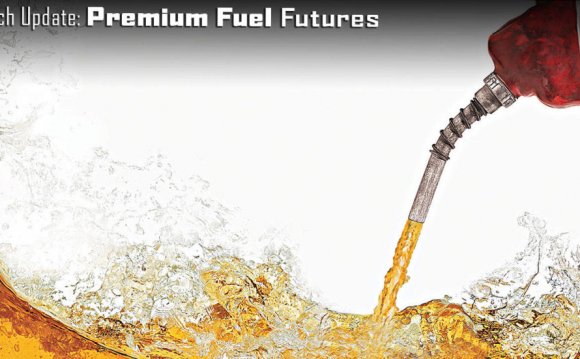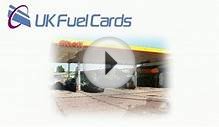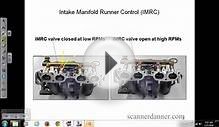
As soon as the price of fuel spikes, motorists scramble to reduce fuel expenses. An instant method for saving about 20 dollars per gallon (frequently whenever $4 per fill-up) would be to end pumping premium gasoline and switch to regular class. But just how will you know if the switch is safe or if it'll harm the motor inside vehicle?
The key for drivers is always to know whether premium fuel is only suggested or if it really is needed. In the current cars, advances in engine technology signify just because the master's manual recommends premium fuel, the automobile will typically run using regular without concern and wont harm the engine in every other method. The vehicle's performance might experience just somewhat: it may be a half-second slower from zero to 60 mph, for-instance. Nevertheless the normal driver is not very likely to observe this drop-off.
Motorists regularly get a tank of premium gas once in some time to wash their engine. Years ago, advanced gas included even more detergents and additives to cease carbon deposits. But professionals state that as a result of federal government regulations targeted at cutting emissions, all grades of gasoline, including those you purchase at independent, low-price programs have many additives to both protect motors and reduce air pollution.
Edmunds has compiled two lists: "premium recommended" and "premium required" for cars from the 2010-2015 design years (with some 2016 model-year vehicles). In the event the car is on "premium suggested" number, you're OK to use switching to regular unleaded gasoline. If, however, your vehicle is regarding "premium needed" number, then chances are you must run advanced fuel. You'll confirm the knowledge on these listings by examining your owner's handbook.
Smarter Engines Shield Themselves
If you should be nevertheless in question about switching to a lower-octane fuel, here's a deeper description of why the change is unlikely to harm your vehicle.
To begin with, advanced gasoline is much more high priced since it includes a higher portion of octane. How come this essential? Whenever vaporized fuel mixes with air and fills the combustion chamber, it's squeezed by the increasing pistons. This will make the gas-air blend grow hot therefore could ignite before the spark plug fires, pushing backwards from the piston. Higher-octane fuels are compressed to a higher degree without self-igniting. That's why premium gas is used in high-performance engines.
Several years ago, engines could not adjust to fuels with differing octane ranks. Use the wrong gas as well as the engine would hit or "ping" audibly due to the fact gasoline exploded prematurely. This knocking damaged interior motor components in the long run.
These days, engine control methods can make up for reduced octane by keeping track of knock activity and adjusting ignition advance in order to prevent slamming. This advanced electronic capability effectively tunes the engine regarding the fly and gives motorists even more flexibility into the grade of fuels that they can safely use.
Versus premium fuel, lower-octane fuels do not let the motor to perform the maximum amount of ignition advance during situations phoning for rapid speed. More ignition advance enables the motor which will make more energy, and speed up quicker, of these conditions. Considering that the motor does not make rather as much energy with lower-octane fuels, this translates into slowly speed in cars which is why advanced gasoline is recommended. The performance reduction is very obvious in turbocharged fuel machines, which may have become ever more popular in recent years.
The performance reduction, but is one thing you will definitely just notice for those who have huge base and accelerate quickly from a dead stop or while changing lanes at highway speeds. But if you accelerate moderately, the loss of power is barely noticeable, regardless of whether you use premium or regular-grade fuel.
When Premium Is a Money-Saver
Edmunds features mentioned, however, at least one case for which a vehicle with a little turbocharged engine improved gas economic climate whenever running on premium. The automobile involved had been a 2011 Chevrolet Cruze LTZ and, possibly befitting a motor vehicle that's sold as a money saver, the master's handbook only calls for regular unleaded gas. However in a specific test we pointed out that we improved fuel economic climate (and ultimately saved some cash) by using premium gasoline. One element impacting the end result of this research might-have-been your evaluating was conducted in extreme hot-weather conditions, nonetheless.
If you wish to see whenever you can save cash through the use of premium fuel in a car or truck for which it really is suggested but it doesn't require it, perform your test task. Monitor your fuel economy and gratification at minimum two tanks of advanced gasoline. Capture the journey mileage, gallons used, fuel price and octane rating in a notebook or perhaps in an app including path Trip or on a website like Fuelly. When your car features an onboard gas economic climate meter, make certain you reset it when filling. After that, fill for a passing fancy wide range of tanks of regular gasoline and record the same information. Finally, compare the outcomes. You are looking for a drop-off in fuel economic climate or an awareness your car is slower or hesitant under powerful speed.
This is the exercise for a premium-recommended car. It is possible to stick to premium, or step-down to regular unleaded should you want to.
It's a new tale for a vehicle whose engine calls for advanced gasoline. The automobile will nevertheless run on regular gasoline in a-pinch, but you should not make a habit from it. The gas's reduced octane can lead to elevated exhaust-gas temperatures and possible knocking, each of that could negatively affect the motor's wellness in the long run. Operating regular-grade gas in a vehicle that needs advanced may appear like a great way to shave a car's operating prices, but the short-term savings will not come near offsetting the cost of repair works to a damaged engine.
For everyone driving "recommended premium" automobiles, but's just a matter of operating reasonably and preventing acceleration with a wide-open throttle. Accomplish that while might never have the distinction between utilizing advanced and regular class gas: and neither will your car.
RELATED VIDEO











